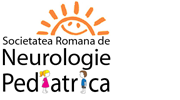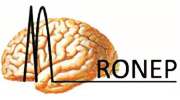SRIE Summer School &
The 2nd East-European Epilepsy Course
15-17 June 2016 | CHEILE GRADISTEI
Course directors: Dana Craiu, Stanislav Groppa, Alla Guecht (TBD) Eugen Trinka (TBD)
Local Organizing committee : Dana Craiu, Laura Popescu, Tudor Lupescu, Iuliu Bacos, Oana Tarta-Arsene
Secretary : Florentina Grigore (flore.ronep@yahoo.com)
Scientific Committee: Iuliu Bacos (RO), Carmen Barba (IT), Diana Barca (RO), Meir Bialer (Israel), Jean Ciurea (RO), Dana Craiu (RO), Ljerka Cvitanovic Sojat (Croatia), Alice Dica (RO), Petia Dimova (BG), Stanislav Groppa (Rep Moldova), Alla Guekht (Russia), Hrvoje Hecimovic (Croatia), Catrinel Iliescu (RO), Nebojsa Jovic (Serbia), TBD (Ukraine), Tudor Lupescu (RO), Ioana Mindruta (RO), Cristina Motoescu (RO), Cristina Panea (RO), Dragoslav Sokic (Serbia), Niccola Specchio (IT), Oana Tarta-Arsene (RO), Eugen Trinka (AU), Mihaela Vintan (RO), Slavica Vujisic (Montenegro).
This course is supported and endorsed by ILAE-CEA and organized under the umbrella of Romanian ILAE Chapter (SRIE), in collaboration with Romanian Society of Pediatric Neurology (SRNP), Romanian Society of Neurology (SNR) and Romanian Foundation for Epilepsy and Neurology (RONEP).
Course general information
Venue 2016: Cheile Gradistei, Romania
The 2016 Course offers basic knowledge on epilepsy treatment in children and adults based on interactive clinical case-discussions (participants are invited to send their cases related to the announced topics for review and selection at least 2 month before the curse at flore.ronep@yahoo.com). Lectures offered by the faculty will summarize knowledge. This course has international appeal.
Topics: AED pharmacokinetics and drug interactions, First seizure management, Treatment in newly diagnosed patients (How to choose AED treatment), Molecular targets of AEDs, Dug choice by seizure type and epilepsy syndrome, Original versus generics, Status epilepticus treatment, Limbic encepha litis, Adverse reactions to AEDs – how to monitor and how to treat, AED discontinuation, Contraception and AEDs, Catamenial epilepsy, Impact of AEDs on fertility, How to follow a pregnancy in WWE, Impact of AEDs on children of WWE (cognition, malformations), Breastfeeding in WWE, Epilepsy treatment in infancy based on clinical cases, Epilepsy in elderly and patients with comorbidities (all based on case discussions and supported by literature).
Provisional Faculty
Iuliu Bacos (RO), Carmen Barba (IT), Diana Barca (RO), Meir Bialer (Israel), Jean Ciurea (RO), Dana Craiu (RO), Ljerka Cvitanovic Sojat (Croatia), Alice Dica (RO), Petia Dimova (BG), Stanislav Groppa (Rep Moldova), Alla Guekht (Russia), Hrvoje Hecimovic (Croatia), Catrinel Iliescu (RO), Nebojsa Jovic (Serbia), TBD (Ukraine), Tudor Lupescu (RO), Ioana Mindruta (RO), Cristina Motoescu (RO), Cristina Panea (RO), Dragoslav Sokic (Serbia), Niccola Specchio (IT), Oana Tarta-Arsene (RO), Eugen Trinka (AU), Mihaela Vintan (RO), Slavica Vujisic (Montenegro).
Target audience
Pediatric neurologists and adult neurologists, neurophysiologists, psychiatrists, neurosurgeons with a medium level of expertise in the area of epilepsy care (already dealing with epilepsy patients). The 2016 course aims for 60 participants with possibility of extending to 80 if there is request for it.
Venue 2014: Cheile Gradistei, Romania http://www.cheilegradistei.ro/resort- moeciu/index.php?page=home&lang=en
Cheile Gradistei is situated 3 hours driving from Bucharest airport (direct flights from most European cities and UK) and 2.5 hours away from Sibiu airport (directly connected to some European cities). It is situated in the middle of Romania, Transylvanian area, near Brasov city and 5 km near Bran Castle, the so called “Dracula’s Castle”. Cheile Gradistei offers a special advantage of isolation in the middle of splendid nature creating the possibility of good interaction among participants and trainers, premises for future collaboration and friendship. Cheile Gradistei is located 5 km near Bran Castle, the so called “Dracula’s Castle”.
Transport to venue:
Participant’s arrival is expected the evening before the course (June 14th). Cheile Gradistei is situated 3 hours driving from Bucharest airport (direct flights from most European cities and UK) and 2.5 hours away from Sibiu airport (directly connected to Germany). Due to distance, arrangements will be made for transportation of all participants and trainers from Bucharest to Cheile Gradistei and back within certain time limits (will be further announced).
Accommodation:
The course organizers booked 80 rooms in Cheile Gradistei Complex at special prices (included in the course cost).
Programul poate fi descarcat in format .pdf aici.
PROGRAMME
EECE 15-17 June 2016
Language: ENGLISH
Day 1 (15.06.2016)
Antiepileptic Drug Treatment
08:30 – 09:00: Opening, faculty and students presentation
09:00 – 11:00: AED treatment 1 – How to start?
- 00 – 09.30: Meir Bialer: AED pharmacokinetics and drug interactions
- 30 – 10.00: Cristina Pomeran, Diana Barca, Alice Dica: First seizure management (with clinical examples)
- 00 – 11.00: Nicola Specchio: AED in pediatric epilepsies (Seizures and epileptic syndromes)
11:00 – 11:30: Coffee break
11:30 – 13:30: AED treatment 2 – How to judge?
- 30. – 12.30 – Nebojsa Jovic: Epilepsy specific treatment in infancy based on clinical cases – update
- 30. – 13.30: Carmen Barba – Epileptic encephalopathies – diagnostic workup and treatment – learn from clinical cases
13:30 – 15:00: Lunch
15:00 – 16:30: AED treatment 3: Learn how to treat and monitor treatment from clinical cases
- 00-15.30: Dana Craiu: is it epilepsy or not? Would you treat? Definitions.
- 30 – 16.00: Mihaela Vintan – How to introduce and monitor treatment? Practical issues
- 00 – 16.15: Carmen Sandu, Dana Craiu – Treatment of JME in adolescence and young adulthood
- 15 – 16.30: Cristina Pomeran, Dana Craiu – How to deal with adverse effects of CBZ and LTG?
16:30 – 17:00: Coffee break
17:00 – 18:30: AED treatment 4: Learn how to treat and monitor treatment from clinical cases
- 00 – 17.45: M Bialer: How to choose medication in epilepsy (tutorial on drug interactions)
- 45 – 18.10: Carmen Sandu, Cristina Motoescu, Camelia Sandu, Dana Craiu – Psychiatric and metabolic effects of AEDs – how to monitor and how to treat (using clinical examples)
- 10 – 18.30: Mihaela Vintan – How to treat a resistant epilepsy with multiple drugs?
- 30 – 18.50: Iuliu Bacos – Hematologic effects of AEDs – how to monitor?
Day 2 (16.06.2016)
Treatment of resistant epilepsies – alternatives to AEDs
09:00 – 11:00 Resistant epilepsy – KD, VNS, canabidiol – do they work?
- 00-09.45: Carmen Sandu, Dana Craiu, Catrinel Iliescu: Ketogenic diet (disscussions based on clinical cases): Patients selection, Protocol (how to start and monitor patients?), How to adapt medication to clinical situations?, Should it be stopped?
- 45 -10.30: Dragoslav Sokic: Vagus nerve stimulation (disscussions based on clinical cases): Patients selection; How to adapt parameters to clinical situations?; Should it be stopped?
- 30. – 11.00: Nicola Specchio – Canabidiol as an alternative in treatment of resistant epilepsy – is it a valid alternative?
11:00 – 11:30: Coffee break
11:30 – 13:00 – Treatment – women with epilepsy
- 30 – 12.30. Cristina Panea: Practical aspects related to pregnancy in women with epilepsy
- 30. – 13.00. Dana Craiu: Contraception and AEDs
13:00 – 14:30: Lunch
14.30 – 16.30 – Treatment of resistant epilepsies: Epilepsy surgery 1
- 30 – 15.00: Nicola Specchio – Video-EEG monitoring and intracerebral EEG in drug resistant epilepsies.
- 00 – 15.30: Ioana Mindruta, Cristian Donos, Andrei Barborica, Alin Rasina, Jean Ciurea: Steps of Invasive presurgical exploration in drug resistant epilepsy – planning, recording and outcome
- 30 – 16.00: Oana Tarta-Arsene – Vegetative symptoms in epilepsy
- 00 – 16.30: Carmen Barba – Surgery for Epileptic encephalopathies
16.30 – 17.00 Coffee Break
17.00 – 18.40 – Treatment of resistant epilepsies: Epilepsy surgery 2
- 17:00 – 17:20: Ioana Mindruta, Cristian Donos, Andrei Barborica, Alin Rasina, Jean Ciurea: Radiofrequency coagulation during invasive monitoring for pre surgical evaluation
- 17:20 – 17:40: Carmen Barba – case presentation- surgery for epileptic spasms – is it a feasible option?
17:40 – 18:00: Source localisation and other post-processing methods for pre surgical evaluation – Mihai Malaia, Cristian Donos, Andrei Barborica
00 – 18.20: Oana Tarta-Arsene, Cristina Motoescu, Sergiu Stoica, Dana Craiu – Epilepsy surgery in children - 20 – 18.40: Use of Intracranial direct electrical stimulation for surgical planning during presurgical evaluation – Irina Popa, Cristian Donos, Sabina Ene, Anca Arbune, Andrei Danes, Ioana Mindruta, Andrei Barborica
Day 3 (17.06.2016)
Treatment of resistant epilepsies
09:00 – 11:00 – AED treatment 5 – Difficult to treat patients – status epilepticus
- 00. – 09.30. Eugen Trinka: Impact of the new definition and classification of SE
- 30. – 10.00. Stanislav Groppa: Status epilepticus treatment
- 00. – 10.30. Alla Guecht: Traumatic Brain Injury and epilepsy
- 30. – 11.00. Dana Craiu: ESES treatment
11:00 – 11.30: Coffee break
11:30 – 13:00 : AED treatment 6 – How to monitor and stop treatment?
- 30 – 12.00: Dragoslav Sokic: Original versus generic
- 00 – 12.30: Nicola Specchio: Management of prolonged seizures (oral midazolam)
- 30 – 13.00: Eugen Trinka: Should I withdraw medication, when a patient is seizure free?
13:00 – 14:00: Lunch
14:00 – 15:30: AED treatment 7 – Difficult to treat patients
- 00. – 14.30. Alla Guecht (Russia): Epilepsy and depression (case discussions and short literature review) – 30 min
- 30. – 15.00. Tudor Lupescu – Epilepsy in elderly patients (starting from cases and supported by literature)
- 00 – 15.30. Iuliu Bacos –Autoimmune encephalitis. Case presentation and short update
15:30 – 17:00 – Video Session
- 30. – 16.00. Cristina Pomeran. How would you manage this case? Interractive cases discussions
- 00. – 17.00. Nicola Specchio – Semiology of epileptic seizures (with video)
17:00 – 17:10: Course closure – conclusions, final remarks, course evaluation results
Cost of the whole course: 360 euro covers:
- Registration fee
- Accommodation: 4 nights in double room (2 participants/room); for single room accommodation, a difference of 20 euro/night should be paid = 80 eur
- Meals (4 x breakfast + 4 x dinner + 3 x lunch)
- Social program during course
- Materials for course
- Transport Bucharest –venue, back
Bursaries (20)
10 partial bursaries of 250 euro offered by CEA-ILAE (for foreign guests) and 10 partial bursaries of 250 euro offered by Romanian ILAE chapter, SRIE (for Romanian participants) are available and will cover:
- Accommodation: 4 nights in double room (2 participants/room)
- Meals (4x breakfast + 4 x dinner + 3x lunch)
- Social program during course
- Materials for course
- Transport Bucharest –venue, back
All bursary recipients will pay a registration fee of 110 euro. For payment see Booking form.
Criteria for bursary application will include:
- Participants from East-European countries (Bosnia-Hertegovina, Bulgaria, Croatia, Montenegru, Republic of Moldova, Romania, Russia, Serbia, Slovenia, Ukraine);
- Applicants did not receive an ILAE bursary or do not plan to ask an ILAE bursary during the year 2016.
- Young trainees will have priority (under age 40);
- Bursary applicants must prove that they are members of their National Chapters with registration fee for 2016 already payed.
Bursary applicants should send a CV and recommendation from the head of their clinic and prove of their chapter membership with payed 2016 fee until 20 May 2016 (results of selected bursary recipients – 1 June 2016).
DEADLINES:
- 20 May 2016 – Bursary application (results of selection 1 June 2016)
- 1 June 2016 – Final registration
In order to secure a place for The 2nd East-European Epilepsy Course please download and complete the form below and send it via email to: flore.ronep@yahoo.com
Bursary applicants should send a CV and recommendation from the head of their clinic and prove of their chapter membership with payed 2016 fee until 20 May 2016 (results of selected bursary recipients – 1 June 2016).
DEADLINES:
- 20 May 2016 – Bursary application (results of selection 1 June 2016)
- 1 June 2016 – Final registration
Click here or on the image below to download the form






